Faiz Ahmed Faiz: The renowned writer & poet!
Faiz Ahmed Faiz is one of the greatest Urdu poets of the twentieth century.
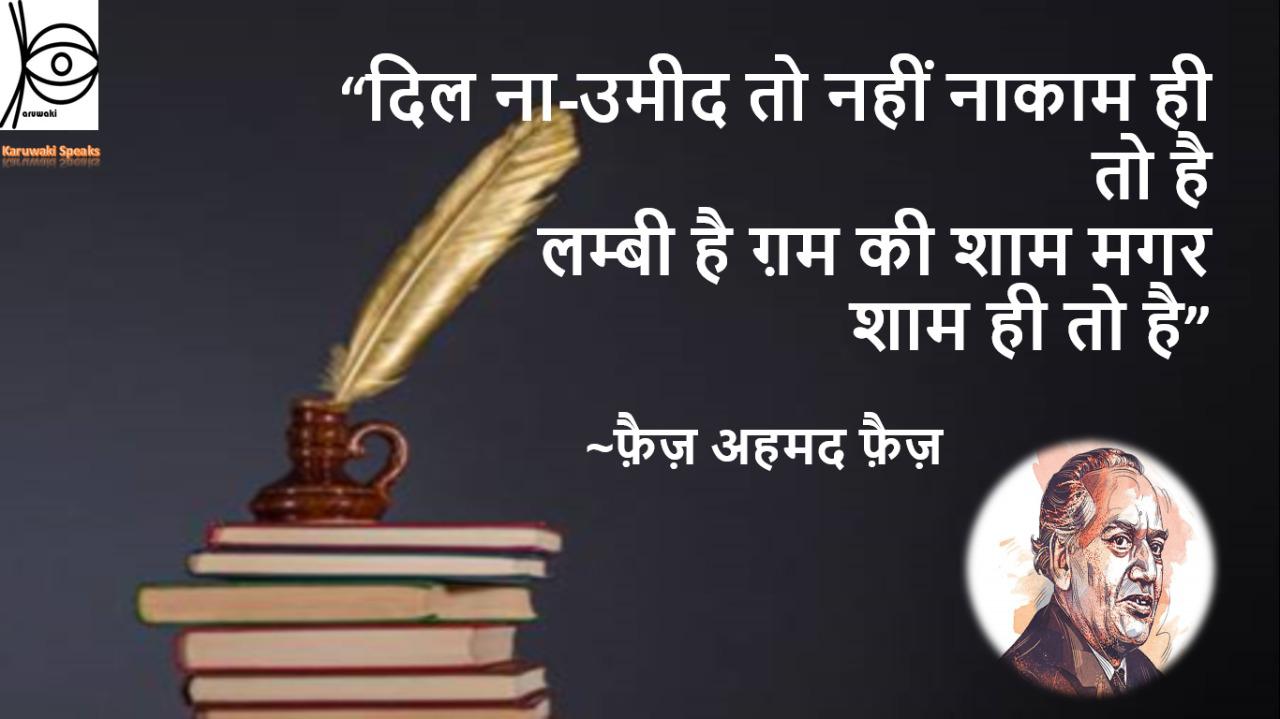
He is remembered for his revolutionary verses, soulful poems of love with a whimsical subtelty.Born on February 13, 1911, in Sialkot, India, which is now part of Pakistan, he had a privileged childhood as the son of wealthy landowners. His father was a prominent lawyer and a member of an elite literary circle which included Allama Iqbal, the national poet of Pakistan.
Initially, he studied at the local Mosque to be oriented to the basics of religious studies by Maulana Hafiz an Ahl-i Hadith scholar, but later his father took him out of the madrassa & enrolled him in the scotish mission school.
In 1926, Faiz studied in Government College, Lahore and was greatly influenced by Shams-ul-Ulema, Professor Professor Pitras Bukhari and Professor Mir Hasan who had also taught the renowned philosopher, poet, and politician of South Asia, Dr. Muhammad Iqbal.
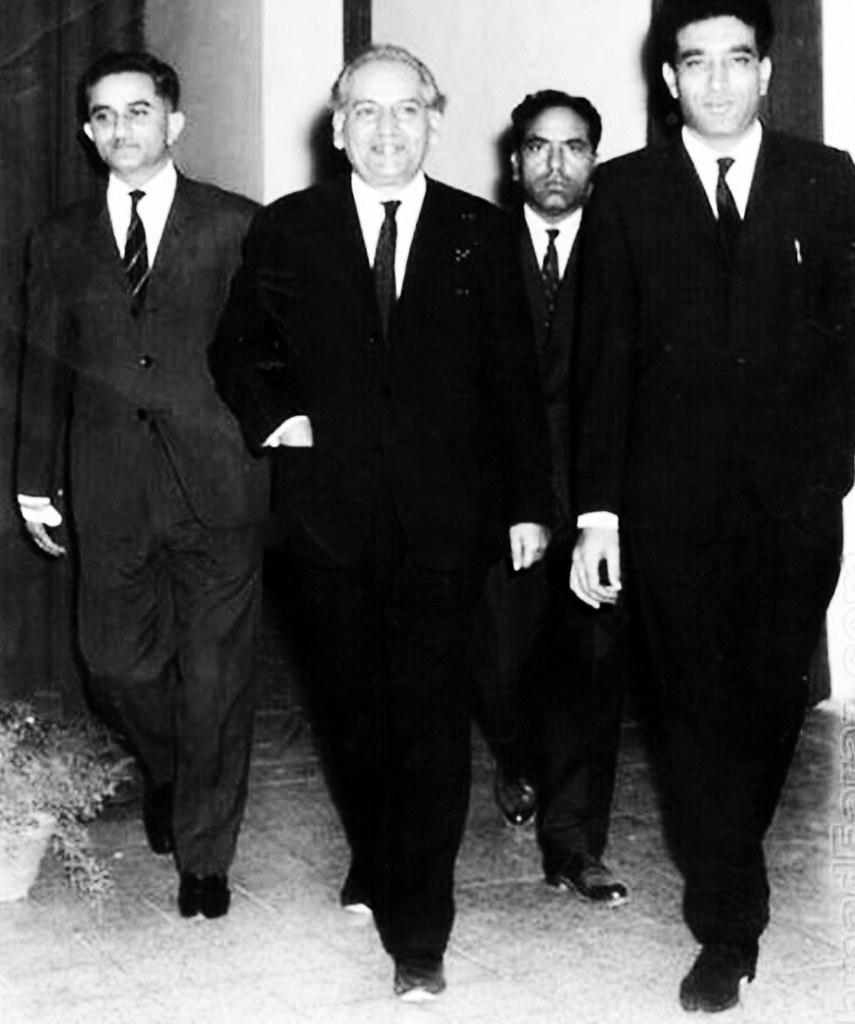
It was during his college years, that he met M. N. Roy and Muzaffar Ahmed who influenced him to become a member of the Communist Party. It is an interesting fact of Indian social history that the Muslim leftist intellectuals of those times came mostly from affluent, elite families.
Brought up in the shadow of the Russian Revolution and nurtured on the populist notions of the French Revolution, they felt drawn to Marxism because of their dissatisfaction with the sociopolitical structure of the times, the oppressiveness of the British rule and a strong sense of the need for change.They were established idealists & true dreamers.
Along with Faiz, his compatriots were Kaifi Azmi,Sajjad Zaheer, Rashid Jahan, Mahmud-uz Zafar, ZA Ahmed, Muhammad Habeeb, Sibt-e Hasan, Sardar Jafri, Muhammad Ashraf, Abdul Ahmed who shared the same ideology and dream: the world needed to be changed, and Marxism was the force that could bring about the change.
The Progressive Writers’ Movement, founded in 1935 in London by Sajjad Zaheer and Mulk Raj Anand, among others, was the literary form of that dream.In 1941, Faiz met & married Alys Faiz, a British national and a member of Communist Party of the United Kingdom, who was a student at the Government College University where Faiz taught poetry.
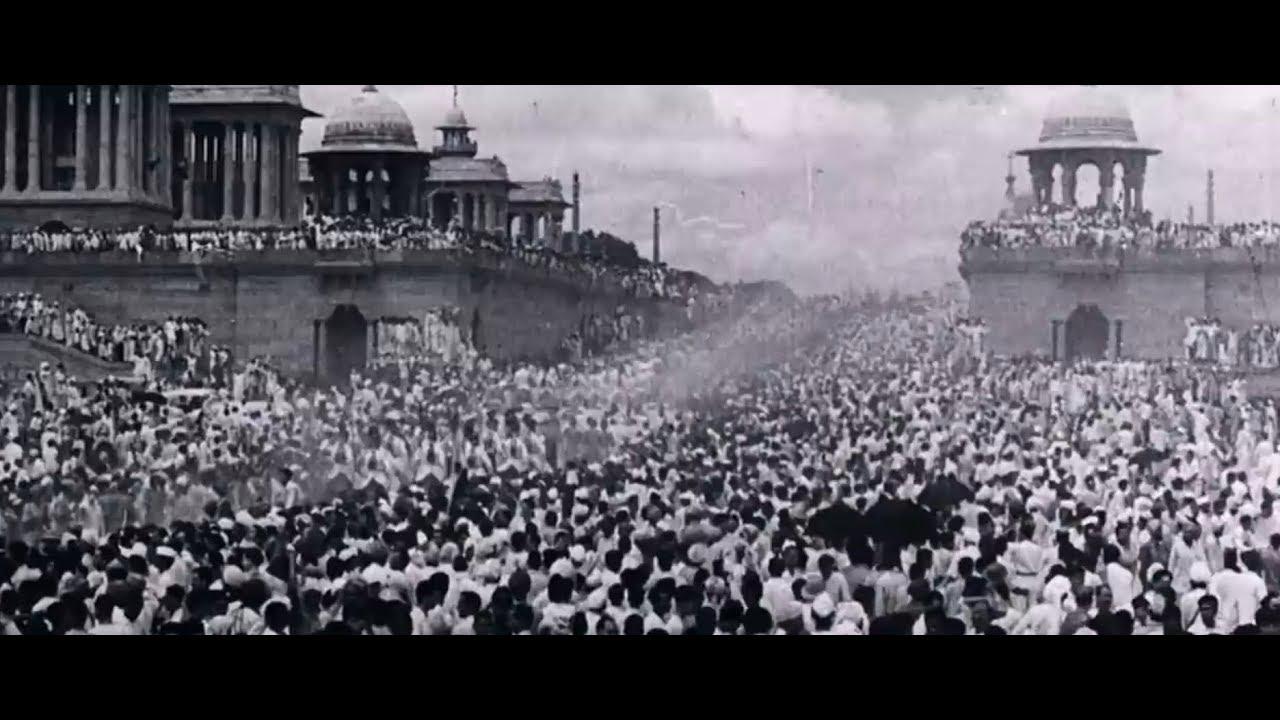
When India became independent in 1947,his poem Subh-e Azaadi (The Dawn of Freedom) records the disappointment that he personally, and the communists as a party, felt with the way things ultimately turned out for the Indian subcontinent. The Partition also served a massive blow, not just to leftist ideals but also to the Progressive Writers’ Movement.
In his poem "The Morning of Freedom", written in those numinous midnight hours of mid-August 1947, Faiz began:
This stained light, this night-bitten dawn
This is not the dawn we yearned for.
The same poem ends with a warning and an exhortation:
The time for the liberation of heart and mind
Has not come as yet.
Continue your arduous journey.
Press on, the destination is still far away.
Then Gandhi was assassinated and Faiz expressed his sense of deep loss by actually attending Gandhi’s funeral in Delhi, despite the bitter Hindu–Muslim relations at that point of time.Naqsh-e-Fariyaadi (The supplicant’s portrait), his first collection of poems, was published in 1941.
An uncompromising poet of both romantic and patriotic love, Faiz was also a political figure and a very public writer, taking on the central issues of his time,both inside and outside his poetry.
In february 1947, Faiz became the editor of two dailies in Lahore: the Pakistan Times (in English) and the Imroz (in Urdu). Faiz was also active in the trade union movement. In 1951, he also became the vice president of the Trade Union Congress, the labour wing of the Communist Party of Pakistan.
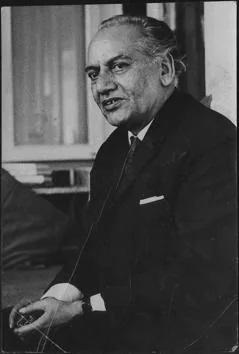
He was arrested in March 1951, in connection with the Rawalpindi Conspiracy case, which was an aborted plan against Liaqat Ali Khan and held in solitary confinement, where he was even deprived of writing material. It was during this period that he composed the following poem:
“My pen and tablet, all that I had
Taken away from me
But what’s there to grieve for?
For I have dipped my fingers in my heart’s blood
So what if my lips have been sealed shut?
I have now put a tongue in
Each and every link of the chain”
Denied pen and paper, Faiz had to commit this verse to memory even as he composed it.His letters to his wife, Alys spelled out his ideology and analyses, spiked with sarcasm and asides. “Every giggling ninny is now a politician".Faiz had strong ties with Zulfikar Ali Bhutto and worked closely with the government in different capacities.
Bhutto's removal by General Muhammad Zia-ul-Haq in 1977, in a military coup codename Fair Play and his execution in 1979, forced Faiz to take asylum in Lebanon, where he edited the Soviet-sponsored magazine Lotus and met well-known Arab figures like Edward Said and Yasser Arafat.
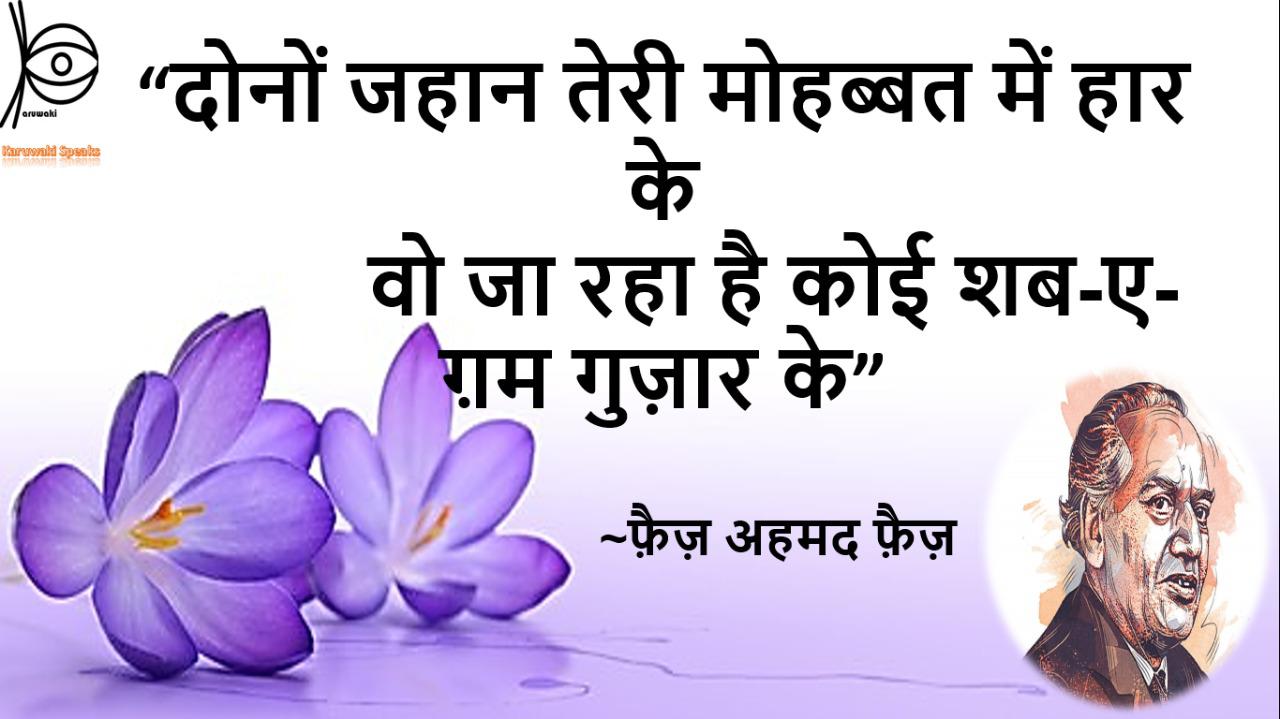
He returned to Pakistan in poor health after the renewal of the Lebanon War in 1982.He was the first Asian poet to receive the Lenin Peace Prize, awarded by the Soviet Union in 1962. In 1976 he was awarded the Lotus Prize for Literature.
In 1984, Faiz died in Lahore, Punjab Province, shortly after hearing that he had received a nomination for the Nobel Prize for Literature.Faiz remained an extremely popular and influential figure in the literary development of Pakistan's arts, literature, and drama and theatre and is one of the greatest contemporary poet of the east.Faiz was an exceptional lyric poet, and his many ghazals, set to music, earned him literally millions of admirers.
"Mujh Se Pehli Si Mohabbat" was originally sung by Madam Noor Jehan on the request of the poet himself. Faiz, who had spent his time in jail listening to her songs on the radio,requested her to sing at a small party celebrating his return from jail.
She composed a tune for it on the spot without the use of any musical instrument. The musical quality of her rendition mesmerised Faiz who would later credit her as the co-author of his poem because he believed no one could sing it with such perfection.
The English translation of this nazm:
Do not ask of me, my love,
that love I once had for you...
How lovely you are still, my love,
but I am helpless too;
for the world has other sorrows than love,
and other pleasures, too.
Do not ask of me, my love,
that love I once had for you.
Faiz was always controversial in his lifetime and beyond - yet those who hated his ideas, confessed to loving his poetry and were seduced by its sheer love of life and humankind.
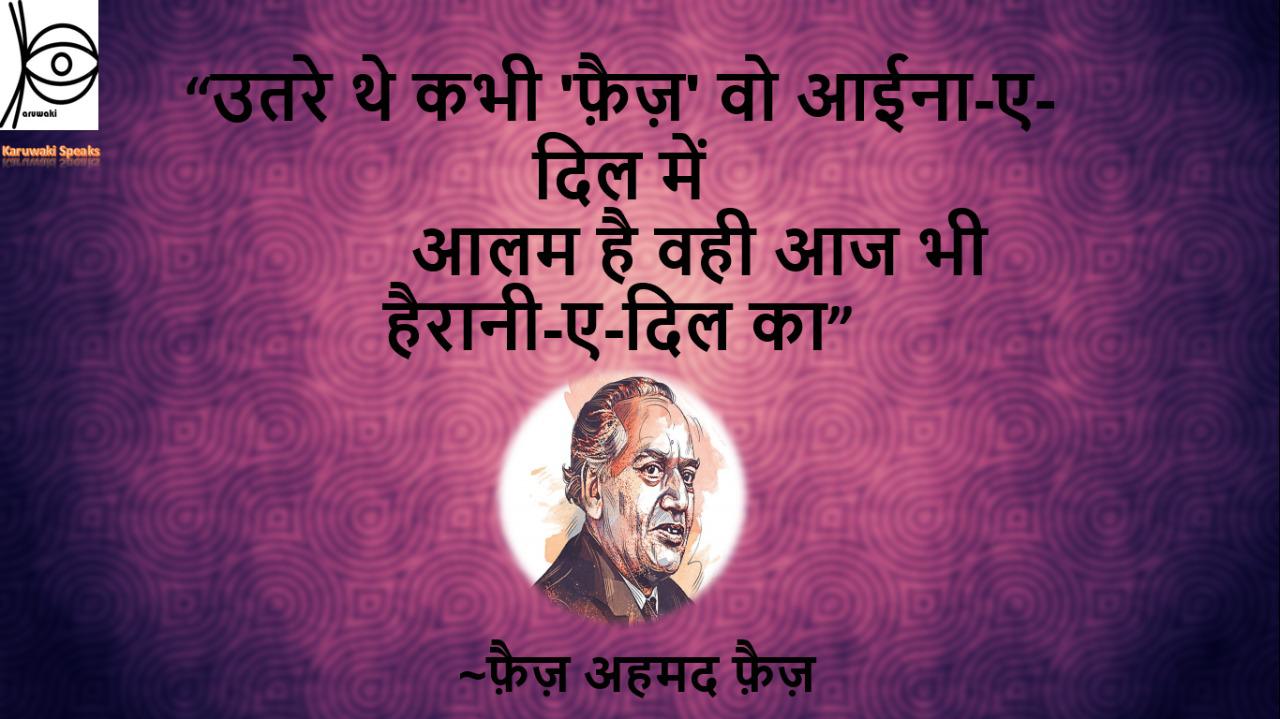
Quoting Faiz:
"Human ingenuity, science and industry have made it possible to provide each one of us everything we need to be comfortable provided these boundless treasures of nature and production are not declared the property of a greedy few but are used for the benefit of all of humanity… However, this is only possible if the foundations of human society are based not on greed, exploitation and ownership but on justice, equality, freedom and the welfare of everyone… I believe that humanity which has never been defeated by its enemies will, after all, be successful; at long last, instead of wars, hatred and cruelty, the foundation of humankind will rest on the message of the great Persian poet Hafez Shiraz: ‘Every foundation you see is faulty, except that of Love, which is faultless."
Commenting on the legacy of Faiz,Tina Sani,the famous pakistani classical singer said:Faiz's poetry never gets old because the problems and situations in this country have not changed. Today we sing him because of his beautiful poetry, missing out on the reasons behind his poems that had predictions.
Comments (4)



